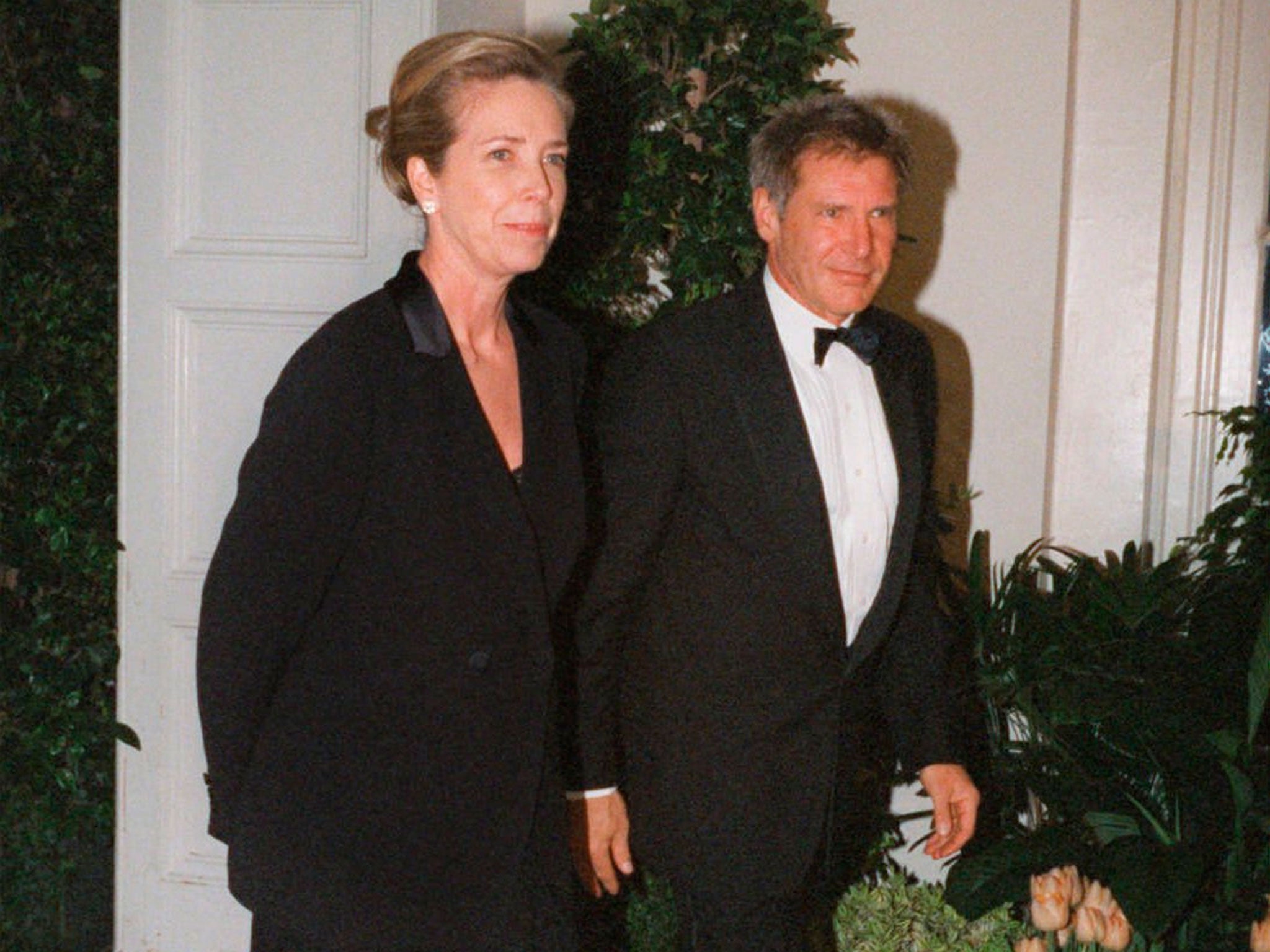Melissa Mathison: Screenwriter Oscar-nominated for her work on Steven Spielberg's ET who also worked with Martin Scorsese
Mathison's final screenplay was again for Spielberg, and another adaptation of a children's book, Roald Dahl's The BFG

The screenwriter Melissa Mathison had a particular affinity for children's and fantasy projects, most famously with her second film, ET: the Extra-Terrestrial. Her films are often about children cast adrift, left to understand the world on their own. She had recently joined Steven Spielberg again for the forthcoming Roald Dahl adaptation, The BFG.
Mathison was born into a writing family: her mother was food editor of Fortnight magazine while her father was Newsweek's Los Angeles bureau chief. While studying political science at Berkeley, Mathison babysat, and among her clients was Francis Ford Coppola. He employed her behind the camera on The Godfather Part II (1974) and Apocalypse Now (1979) and encouraged her to write, whereupon she left university.
Coppola's studio produced Black Stallion (1979), her adaptation of Walter Farley's classic 1941 novel. Then along came Spielberg. Mathison's parents had divorced in 1969, and Spielberg had wanted to make a film dealing with his own parents' divorce since the late 1970s. When "Night Skies", about home-invading aliens, collapsed, Spielberg developed its subplot about a friendly alien.
"Melissa delivered this 107-page first draft, and I read it in about an hour," Spielberg recalled. "I was just knocked out. It was a script I was willing to shoot the next day. It was so honest, and Melissa's voice made a direct connection with my heart." But there was some polishing. "I would write for four or five days in my little office in Hollywood, and then drive out to Marina Del Rey, where Spielberg was editing in a little apartment on the beach," she said. "It took about eight weeks for us to get the first draft, which was quite fast, I think."
It was shot under conditions of extreme secrecy, the production title, "A Boy's Life", hiding its storyline. Final tweaks included cutting a scene featured Mathison's husband Harrison Ford, whom she had met on the set of Apocalypse Now, as the school principal.
Elliott's struggle with abandonment, his parents' fractious relationship and the succour he finds in an equally lost, friendly alien, resonates on multiple levels, though Spielberg rejects the idea that it is a Christian metaphor. Mathison's script was Oscar-nominated (losing to Gandhi), but ET held the box-office record until it was overtaken by Spielberg's Jurassic Park.
Two days after ET opened came the Mathison-scripted directorial debut of Black Stallion cinematographer Caleb Deschanel. In The Escape Artist, an escapologist's son leaves home and discovers the previously mysterious circumstances of his father's death.
Meanwhile Mathison wrote "Kick the Can", the second episode of the portmanteau Twilight Zone: The Movie for Spielberg. In a fantasy on youthfulness, the residents of an old people's home return to childhood, whereupon they realise that as well as the joys, they will have to re-experience all the pains of their lives.
Now with two children, Mathison stepped back from screenwriting: "I didn't want to be missing their childhood while I was away, busy writing about children." From then on, she took several career breaks. In 1991 she returned with the two-part television western Son of the Morning Star, but this nuanced portrait of Custer suffered unfortunate and unfair comparisons to Dances with Wolves, which had been released three months previously.
In 1995 Mathison returned to familiar territory for The Indian in the Cupboard, adapting Lynne Reid Bank's children's fantasy for Frank Oz, though there were some post-production difficulties: Mathison was one of those objecting to the original score, which was duly dropped.
Mathison became increasingly disillusioned with popular films, saying, "I go to movies with my children and see fat kids burping, parents portrayed as total morons, and kids being mean and materialistic, and I feel it's really slim pickings out there. There's a little dribble of a moral tacked on, but the story is not about that."
She had long been interested in Buddhism, and at college had thought that the exiled Dalai Lama would make a good subject for a script. In 1990, through Richard Gere, she began meeting him, working to balance accuracy and his wishes with a successful script.
Directed by Martin Scorsese, Kundun (1997) is an unusual biopic: its episodic structure, Roger Deakins' beautifully controlled photography and the minimalist score by Philip Glass give it an appropriately contemplative, if slightly aloof, feel. Having bounced from Warner to Universal, it finally landed with Disney, who promoted it only lightly, perhaps for fear of antagonising China.
After another break Mathison returned to children's films, writing the English script for Hiyao Miyazake's Little Mermaid-ish Ponyo (2008), about a goldfish which befriends a five year-old boy. Disney, hoping to cash in on the popularity of Studio Ghibli's films, promoted it heavily and it was a popular success.
Mathison's final screenplay was again for Spielberg, and another adaptation of a children's book, Roald Dahl's classic The BFG – the Big Friendly Giant. Filming wrapped in June this year and it is due for release next July. Mathison died of cancer.
JOHN LEMAN RILEY
Melissa Marie Mathison, screenwriter: born Los Angeles 3 June 1950; married 1983 Harrison Ford (divorced 2004; two children); died Los Angeles 4 November 2015.
Join our commenting forum
Join thought-provoking conversations, follow other Independent readers and see their replies
Comments
Bookmark popover
Removed from bookmarks